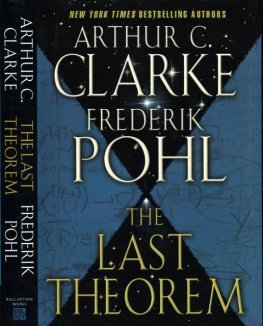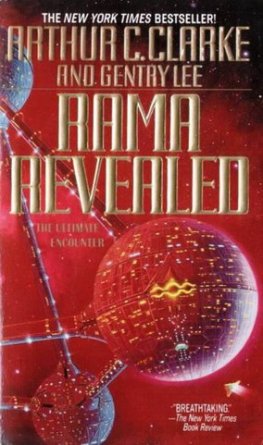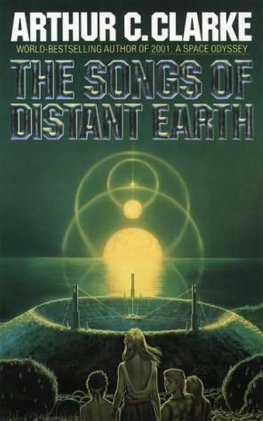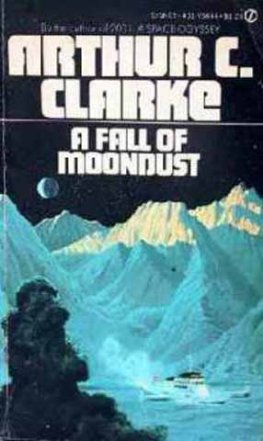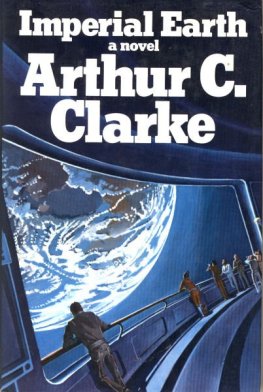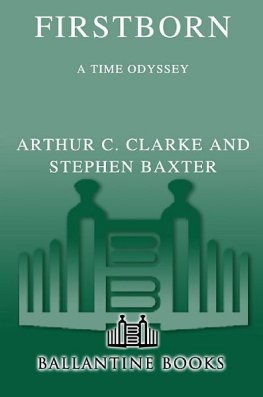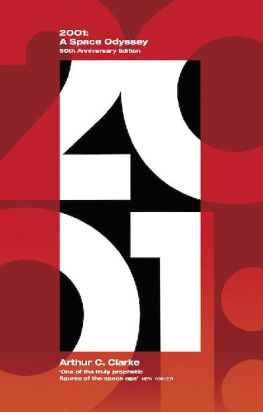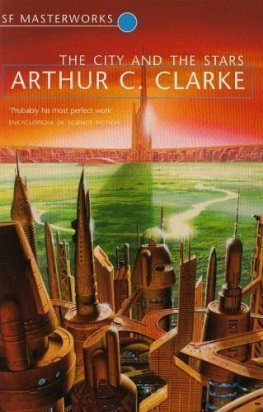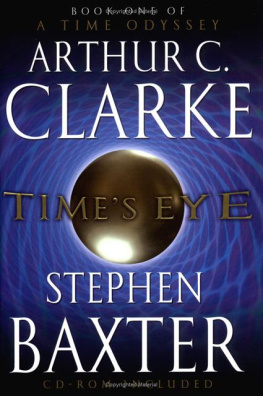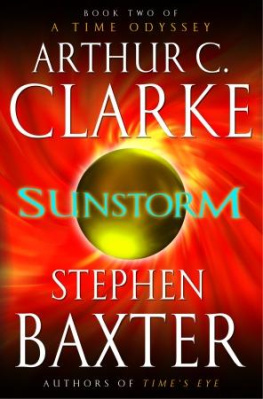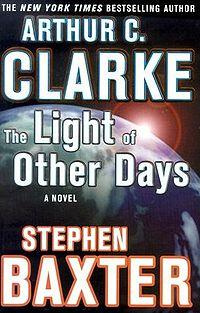Arthur Clarke - The Fountains of Paradise
Here you can read online Arthur Clarke - The Fountains of Paradise full text of the book (entire story) in english for free. Download pdf and epub, get meaning, cover and reviews about this ebook. genre: Romance novel. Description of the work, (preface) as well as reviews are available. Best literature library LitArk.com created for fans of good reading and offers a wide selection of genres:
Romance novel
Science fiction
Adventure
Detective
Science
History
Home and family
Prose
Art
Politics
Computer
Non-fiction
Religion
Business
Children
Humor
Choose a favorite category and find really read worthwhile books. Enjoy immersion in the world of imagination, feel the emotions of the characters or learn something new for yourself, make an fascinating discovery.

- Book:The Fountains of Paradise
- Author:
- Genre:
- Rating:5 / 5
- Favourites:Add to favourites
- Your mark:
- 100
- 1
- 2
- 3
- 4
- 5
The Fountains of Paradise: summary, description and annotation
We offer to read an annotation, description, summary or preface (depends on what the author of the book "The Fountains of Paradise" wrote himself). If you haven't found the necessary information about the book — write in the comments, we will try to find it.
The Fountains of Paradise — read online for free the complete book (whole text) full work
Below is the text of the book, divided by pages. System saving the place of the last page read, allows you to conveniently read the book "The Fountains of Paradise" online for free, without having to search again every time where you left off. Put a bookmark, and you can go to the page where you finished reading at any time.
Font size:
Interval:
Bookmark:
version="1.0" encoding="windows-1252"?>romance_sfArthurC.ClarkeThe Fountains of Paradise
1979enHaaliFB Tools, VIM, Haali Reader2002-07-29#bookz1.0Arthur C. Clarke
The Fountains of Paradise
To the still unfading memory ofLESLIE EKANAYAKE (13 JuIy 1947 4 July 1977) only perfect friend of a lifetime, in whom were uniquely combined Loyalty, Intelligence and Compassion. When your radiant and loving spirit vanished from this world, the light went out of many lives.
NIRVANA PRAPTO BHUYAT
Politics and religion are obsolete; the time has come for science and spirituality.
Sri Jawaharlal Nehru, to the Ceylon Association for the Advancement of Science, Colombo, 15 October 1962.
Foreword
From Paradise to Taprobane is forty leagues; there may be heard the sound of the Fountains of Paradise.
Traditional: reported by Friar Marignolli (A.D. 1335)
The country I have called Taprobane does not quite exist, but is about ninety percent congruent with the island of Ceylon (now Sri Lanka). Though the Afterword will make clear what locations, events and personalities are based on fact, the reader will not go far wrong in assuming that the more unlikely the story, the closer it is to reality.
The name Taprobane is now usually spoken to rhyme with plain, but the correct classical pronunciation is Tap-ROB-a-nee
as Milton, of course, well knew:
"From India and the golden Chersoness
And utmost Indian Isle Taprobane
(Paradise Regained, Book IV)
I THE PALACE
1. Kalidasa
The crown grew heavier with each passing year. When the Venerable Bodhidharma Mahanayake Thero had so reluctantly! first placed it upon his head, Prince Kalidasa was surprised by its lightness. Now, twenty years later, King Kalidasa gladly relinquished the jewel-encrusted band of gold, whenever court etiquette allowed.
There was little of that here, upon the windswept summit of the rock fortress; few envoys or petitioners sought audience on its forbidding heights. Many of those who made the journey to Yakkagala turned back at the final ascent, through the very jaws of the crouching lion, that seemed always about to spring from the face of the rock. An old king could never sit upon this heaven-aspiring throne. One day, Kalidasa might be too feeble to reach his own palace. But he doubted if that day would ever come; his many enemies would spare him the humiliations of age.
These enemies were gathering now. He glanced towards the north, as if he could already see the armies of his half-brother, returning to claim the blood-stained throne of Taprobane. But that threat was still far off, across monsoon-riven seas; although Kalidasa put more trust in his spies than his astrologers, it was comforting to know that they agreed on this.
Malgara had waited almost twenty years, making his plans and gathering the support of foreign kings. A still more patient and subtle enemy lay much nearer at hand, forever watching from the southern sky. The perfect cone of Sri Kanda, the Sacred Mountain, looked very close today, as it towered above the central plain. Since the beginning of history, it had struck awe into the heart of every man who saw it. Always, Kalidasa was aware of its brooding presence, and of the power that it symbolised.
And yet the Mahanayake Thero had no armies, no screaming war elephants tossing brazen tusks as they charged into battle. The High Priest was only an old man in an orange robe, whose sole material possessions were a begging bowl and a palm leaf to shield him from the sun. While the lesser monks and acolytes chanted the scriptures around him, he merely sat in cross-legged silence and somehow tampered with the destinies of kings. It was very strange
The air was so clear today that Kalidasa could see the temple, dwarfed by distance to a tiny white arrowhead on the very summit of Sri Kanda. It did not look like any work of man, and it reminded the king of the still greater mountains he had glimpsed in his youth, when he had been half-guest, half-hostage at the court of Mahinda the Great. All the giants that guarded Mahinda's empire bore such Crests, formed of a dazzling, crystalline substance for which there was no word in the language of Taprobane. The Hindus believed that it was a kind of water, magically transformed, but Kalidasa laughed at such superstitions.
That ivory gleam was only three days' march away one along the royal road, through forests and paddy-fields, two more up the winding stairway which he could never climb again, because at its end was the only enemy he feared, and could not conquer. Sometimes he envied the pilgrims, when he saw their torches marking a thin line of fire up the face of the mountain. The humblest beggar could greet that holy dawn and receive the blessings of the gods; the ruler of all this land could not.
But he had his consolations, if only for a little while. There, guarded by moat and rampart, lay the pools and fountains and Pleasure Gardens on which he had lavished the wealth of his kingdom. And when he was tired of these, there were the ladies of the rock-the ones of flesh and blood, whom he summoned less and less frequently-and the two hundred changeless immortals with whom he often shared his thoughts, because there were no others he could trust.
Thunder boomed along the western sky. Kalidasa turned away from the brooding menace of the mountain, towards the distant hope of rain. The monsoon was late this season; the artificial lakes that fed the island's complex irrigation system were almost empty. By this time of year he should have seen the glint of water in the mightiest of them al l which, as he well knew, his subjects still dared to call by his father's name: Paravana Samudra, the Sea of Paravana. It had been completed only thirty years ago, after generations of toil. In happier days, young Prince Kalidasa had stood proudly beside his father, when the great sluice-gates were opened and the life-giving waters had poured out across the thirsty land. In all the kingdom there was no lovelier sight than the gently rippling mirror of that immense, man-made lake, when it reflected the domes and spires of Ranapura, City of Gold-the ancient capital which he had abandoned for his dream.
Once more the thunder rolled, but Kalidasa knew that its promise was false. Even here, on the summit of Demon Rock, the air hung still and lifeless; there were none of the sudden, random gusts that heralded the onset of the monsoon. Before the rains came at last, famine might be added to his troubles.
Your Majesty, said the patient voice of the court Adigar, the envoys are about to leave. They wish to pay their respects.
Ah yes, those two pale ambassadors from across the western ocean! He would be sorry to see them go, for they had brought news, in their abominable Taprobani, of many wonders-though none, they were willing to admit, that equalled this fortress-palace in the sky.
Kalidasa turned his back upon the white-capped mountain and the parched, shimmering landscape, and began to descend the granite steps to the audience chamber. Behind him, the chamberlain and his aides bore gifts of ivory and gems for the tall, proud men who were waiting to say farewell. Soon they would carry the treasures of Taprobane across the sea, to a city younger by centuries than Ranapura; and perhaps, for a little while, divert the brooding thoughts of the Emperor Hadrian.
His robes a flare of orange against the white plaster of the temple walls, the Mahanayake Thero walked slowly to the northern parapet. Far below lay the chequer-board of paddy-fields stretching from horizon to horizon, the dark lines of irrigation channels, the blue gleam of the Paravana Samudra-and, beyond that inland sea, the sacred domes of Ranapura floating like ghostly bubbles, impossibly huge when one realised their true distance. For thirty years he had watched that ever-changing panorama, but he knew that he would never grasp all the details of its fleeting complexity, colours, boundaries altered with every season indeed, with every passing cloud. On the day that he too passed, thought Bodhidharma, he would still see something new.
Next pageFont size:
Interval:
Bookmark:
Similar books «The Fountains of Paradise»
Look at similar books to The Fountains of Paradise. We have selected literature similar in name and meaning in the hope of providing readers with more options to find new, interesting, not yet read works.
Discussion, reviews of the book The Fountains of Paradise and just readers' own opinions. Leave your comments, write what you think about the work, its meaning or the main characters. Specify what exactly you liked and what you didn't like, and why you think so.

